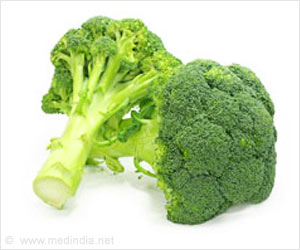Consuming a healthy diet may prevent brain shrinkage in older adults. Individuals who eat a diet rich in vegetables, fruits, nuts, whole grains, dairy and fish may have bigger brains.

‘A healthy diet rich in vegetables, fruits, nuts, whole grains, dairy and fish may reduce brain shrinkage in older adults.’





The study included 4,213 people in the Netherlands with an average age of 66 who did not have dementia.Participants completed a questionnaire asking how much they ate of nearly 400 items over the past month. Researchers looked at diet quality based on the Dutch dietary guidelines by examining intake of foods in the following groups: vegetables, fruit, whole grain products, legumes, nuts, dairy, fish, tea, unsaturated fats and oils of total fats, red and processed meat, sugary beverages, alcohol and salt. Researchers ranked the quality of diet for each person with a score of zero to 14. The best diet consisted of vegetables, fruit, nuts, whole grains, dairy and fish, but a limited intake of sugary drinks. The average score of participants was seven.
All participants had brain scans with magnetic resonance imaging to determine brain volume, the number of brain white matter lesions and small brain bleeds. The participants had an average total brain volume of 932 milliliters.
Information was also gathered on other factors that could affect brain volumes, such as high blood pressure, smoking and physical activity.
Researchers found after adjusting for age, sex, education, smoking and physical activity that a higher diet score was linked to larger total brain volume, when taking into account head size differences. Those who consumed a better diet had an average of two milliliters more total brain volume than those who did not. To compare, having a brain volume that is 3.6 milliliters smaller is equivalent to one year of aging.
Advertisement
For comparison, researchers also assessed diet based on the Mediterranean diet, which is also rich in vegetables, fish and nuts, and found brain volume results were similar to those who adhered closely to Dutch dietary guidelines.
Advertisement
"There are many complex interactions that can occur across different food components and nutrients and according to our research, people who ate a combination of healthier foods had larger brain tissue volumes," Vernooij said.
She noted that because the study was a snapshot in time, it does not prove that a better diet results in a larger brain volume; it only shows an association.
Limitations of the study include that diet was self-reported and relied on someone's ability to remember what they ate over one month, and the study was conducted in a Dutch population and therefore other populations may not have similar results.
Source-Eurekalert















